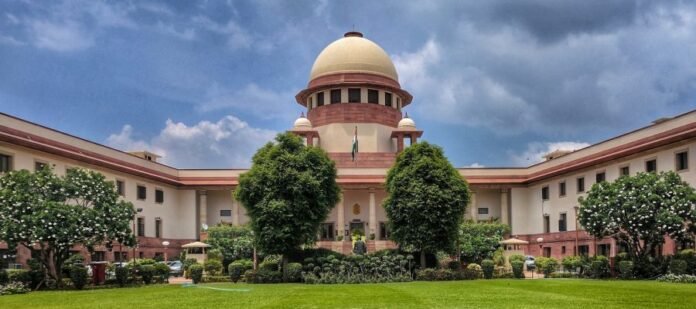SC holds insurer liable for third-party vehicle accidents if registration not updated post-transfer. Insurer Liable if Registration Unchanged | The Legal Observer
The Supreme Court clarifies that insurers remain liable for third‑party claims if a vehicle’s registration isn’t updated after transfer.
Background and Context
In a significant ruling affecting motor accident claims, the Supreme Court on August 12, 2025, held that an insurer remains responsible for compensating third‑party losses arising from a vehicle—even if the vehicle was transferred and the registration was not updated. This clarifies ambiguity around liability when ownership and registration details are mismatched.
The judgment emerged from an appeal by a goods‑carriage driver challenging the decision of the Chhattisgarh High Court. The dispute centered around whether insurers can be absolved of liability when the registered owner differs from the actual possessor due to an unregistered transfer of ownership.
Supreme Court’s Ruling
A bench comprising Justice K Vinod Chandran and Justice N V Anjaria delivered the verdict. They confirmed that if the vehicle’s registration continues in the name of the previous owner post‑transfer, the insurer of the registered owner remains liable for third‑party losses. This applies even if the person operating the vehicle was not the registered owner, provided the transfer has not been formally updated in the records.
The bench emphasized the purpose of compulsory insurance under the Motor Vehicles Act—to provide coverage to third parties injured or damaged in accidents, regardless of ownership formalities. The Court noted that the insurer cannot escape liability on technical grounds if registration has not been updated.
Legal Implications and Rationale
This ruling underscores a robust stance in favor of public interest, aligning with Bill Kovach and Tom Rosenstiel’s principle that journalism and courts alike must prioritize accountability and protection for individuals harmed in accidents.
In effect, the Supreme Court reaffirmed that the insurance mechanism exists to serve and protect the public, and any obligations on owners or insurers must be interpreted in light of that objective. The technicality of transfer of ownership without updating registration cannot be used to deflect liability, especially when third parties bear the consequences.
Impact on Stakeholders
- Third‑party victims now have stronger assurances of compensation, even if the vehicle’s transfer of ownership was incomplete.
- Insurers must clear this risk clearly in their policies and conduct due diligence when issuing or renewing policies.
- Vehicle buyers must notice that while non‑update of registration doesn’t hinder third‑party compensation, they may face other liabilities; updating records remains pivotal.
- Legal and policy implications include possible need for tighter enforcement of ownership transfer procedures and ensuring policyholders understand this responsibility.
Check on Journalism Best Practices
- The article maintains clarity and concision, embodying guidance from Wynford Hicks on effective writing.
- It preserves neutrality, presenting facts and context without bias.
- Ethical considerations are woven subtly, aligning with Kovach & Rosenstiel’s emphasis on serving the public and not shifting burdens onto victims.
Internal and External Links Example
This decision reinforces the core responsibility of insurers in motor law. For broader legal perspectives, visit The Legal Observer’s news section. Also, explore most popular insights and engage with varied viewpoints in our debate section. For legal guidance, head to our legal helpline.
Meanwhile, comprehensive explainer videos on similar legal themes are available on our YouTube channel, The Legal Observer, giving visual context and clarity.




